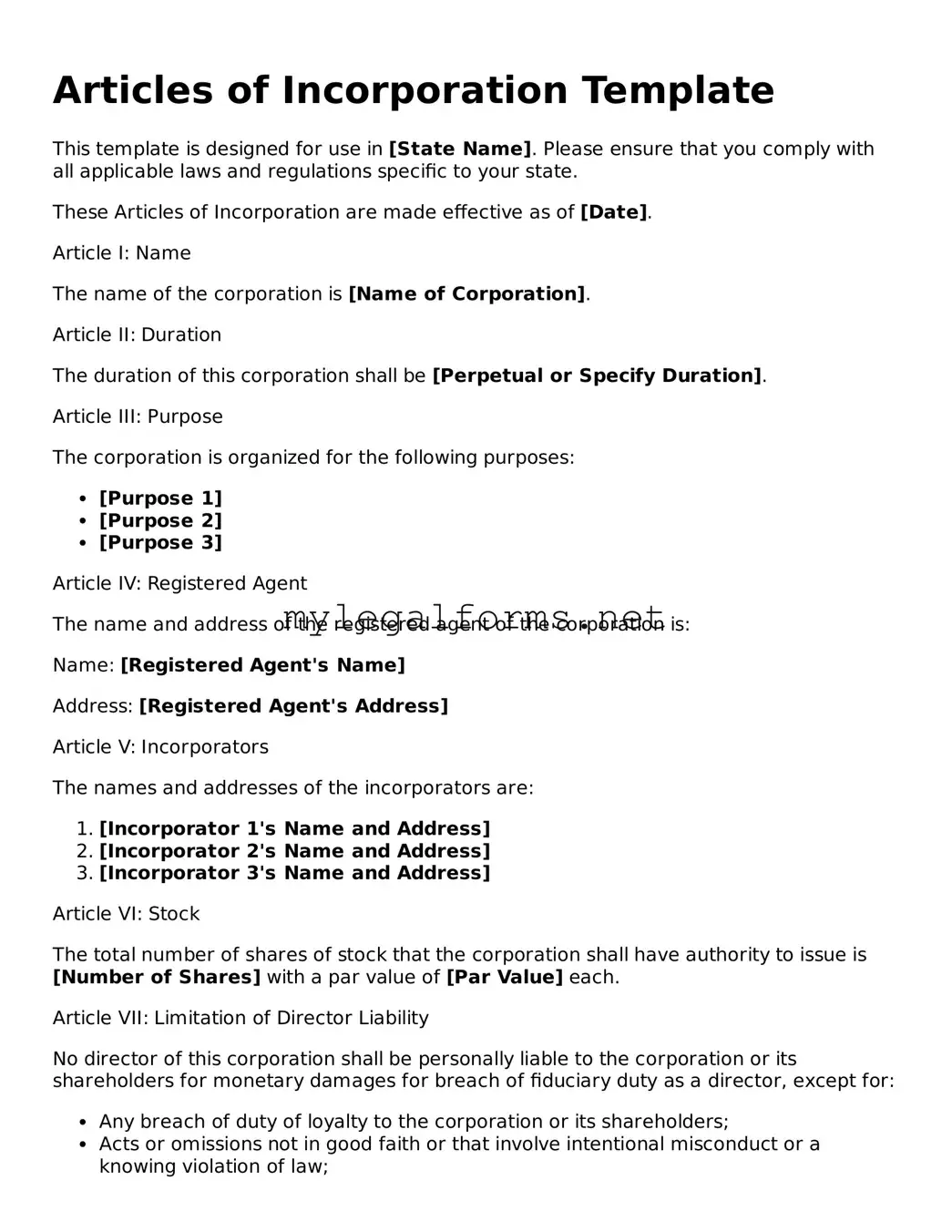Attorney-Approved Articles of Incorporation Form
The Articles of Incorporation form is a legal document that establishes a corporation in the eyes of the state. This form outlines essential details about the business, such as its name, purpose, and structure. Completing this document is a crucial step for anyone looking to create a corporation and enjoy the benefits of limited liability and formal recognition.
Launch Articles of Incorporation Editor

Attorney-Approved Articles of Incorporation Form
Launch Articles of Incorporation Editor

Launch Articles of Incorporation Editor
or
⇓ PDF Form
Complete the form at your pace — fast
Finish your Articles of Incorporation online and download the final version.